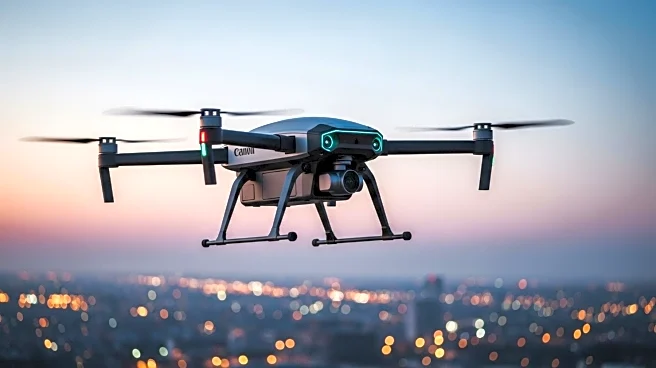What's Happening?
Tony Xu, CEO of DoorDash, shared insights into the company's journey towards developing autonomous delivery technologies during an interview at Fortune's Brainstorm Tech conference. Since 2017, DoorDash has been investing in autonomy and robotics, facing significant challenges along the way. Xu described the process as filled with 'pain and suffering,' highlighting the complexity of mastering various skills required for autonomous technology. DoorDash has adopted a multi-pronged strategy, partnering with companies like Coco Robotics for sidewalk delivery robots and Wing for drone deliveries in Australia. Additionally, DoorDash Labs is working on proprietary delivery robots. Despite these efforts, Xu noted that the company is still in the early stages of commercial progress, with no formal autonomous operations in the U.S. yet.
Why It's Important?
The development of autonomous delivery technologies by DoorDash represents a significant shift in the logistics and delivery industry. Successful implementation could lead to increased efficiency, reduced labor costs, and enhanced customer experience. However, the challenges faced by DoorDash underscore the complexity of integrating such technologies at scale. The potential impact on the U.S. economy includes job displacement in traditional delivery roles and the need for new skills in robotics and technology management. Companies that successfully navigate these challenges may gain a competitive edge, influencing industry standards and consumer expectations.
What's Next?
DoorDash is in the process of obtaining permits for drone deliveries in select U.S. cities, indicating a move towards operational testing. The timeline for full-scale commercial deployment remains uncertain, dependent on technological advancements and regulatory approvals. Stakeholders, including local governments and industry competitors, will likely monitor DoorDash's progress closely, as successful implementation could set a precedent for future autonomous delivery initiatives.









